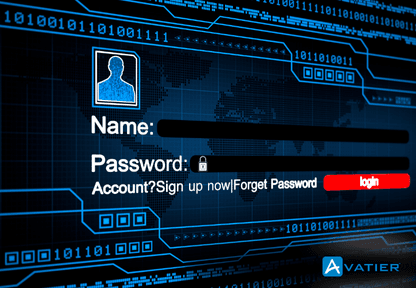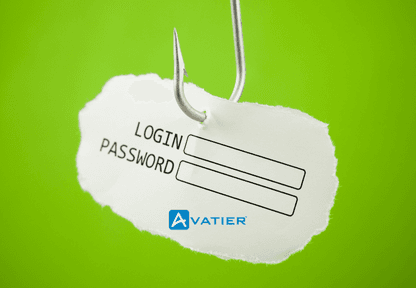July 8, 2025 • Mary Marshall
Selecting the Right Identity Vendor: 12 Critical Evaluation Criteria to Future-Proof Your IAM Strategy
Discover the essential criteria for evaluating identity management vendors like Okta, SailPoint and Avatier. Make an informed decision.

Selecting the right identity management vendor is a decision that will impact your organization’s security posture, operational efficiency, and compliance status for years to come. With digital transformation accelerating across industries, identity has become the cornerstone of effective security strategies.
According to Gartner, by 2025, 80% of enterprises will adopt a strategy to unify web, cloud services, and private application access from a single vendor’s SSO platform, up from 15% in 2020. This shift highlights the critical importance of carefully evaluating potential identity vendors before making a commitment.
This comprehensive guide provides IT leaders, CISOs, and security professionals with the essential criteria to evaluate identity management vendors, helping you navigate beyond marketing claims to find the solution that truly meets your organization’s unique requirements.
Why Your Identity Vendor Selection Matters More Than Ever
The identity management landscape has evolved dramatically in recent years. What was once a relatively straightforward administrative function has transformed into a strategic security imperative critical to zero-trust architectures. Modern identity solutions must address complex challenges including:
- Hybrid and multi-cloud environments
- Remote and distributed workforces
- Increasingly sophisticated cyber threats
- Evolving compliance requirements
- The proliferation of SaaS applications
A recent Forrester study found that organizations with mature identity management practices experience 50% fewer security breaches, save $2.8 million in reduced costs for provisioning and deprovisioning, and reduce help desk calls by 30%. The stakes are high, and your vendor selection will have far-reaching implications.
12 Essential Criteria for Evaluating Identity Management Vendors
1. Comprehensive Identity Lifecycle Management
The foundation of any robust identity solution is comprehensive lifecycle management that automates the entire user journey from onboarding to offboarding. Look for solutions that provide:
- Automated user provisioning/deprovisioning: The ability to automatically create, modify, and remove user accounts across all systems based on HR changes
- Role-based access control (RBAC): Predefined access profiles based on job responsibilities
- Workflow automation: Customizable approval workflows for access requests
- Self-service capabilities: Empowering users to manage their own access without IT intervention
According to an Avatier case study, implementing comprehensive identity lifecycle management can reduce provisioning time by up to 90% while strengthening security through consistent access controls.
2. Unified Access Management
Modern enterprises require a unified approach to access management that eliminates silos between on-premises and cloud resources. Evaluate vendors based on their ability to provide:
- Single sign-on (SSO): One-click access to all applications regardless of location
- Federated identity: Seamless authentication across organizational boundaries
- Adaptive authentication: Risk-based authentication that adapts to user behavior and context
- Session management: Controls for managing user sessions across applications
Look for solutions that offer broad protocol support (SAML, OAuth, OIDC, WS-Fed) and can integrate with legacy systems through flexible connectors. Avatier’s SSO software delivers these capabilities while maintaining simplicity for end-users.
3. Advanced Governance Capabilities
Identity governance has become increasingly important as organizations seek to maintain compliance while optimizing security. Key governance features to evaluate include:
- Access certification campaigns: Automated periodic reviews of user access rights
- Segregation of duties (SoD) controls: Prevention of toxic access combinations
- Policy enforcement: Automated enforcement of access policies
- Compliance reporting: Pre-built reports for major compliance frameworks
Research from SailPoint indicates that organizations with mature governance practices reduce audit preparation time by 75% and decrease the risk of failed audits by 60%.
4. Self-Service and Automation Capabilities
In today’s fast-paced business environment, IT teams cannot afford to be bottlenecks for access requests. Evaluate vendors based on their self-service capabilities, including:
- Password management: Self-service password reset with multi-factor authentication
- Access requests: Intuitive interfaces for requesting access to resources
- Group management: Self-service group management with appropriate controls
- Delegation capabilities: The ability to delegate approval authority
According to a Gartner study, organizations that implement self-service identity management reduce help desk calls by up to 40% and improve user satisfaction by 15%. Avatier’s Group Self-Service solution exemplifies this approach by empowering users while maintaining appropriate governance controls.
5. Integration Capabilities and Ecosystem
No identity solution exists in isolation. Evaluate vendors based on their ability to integrate with your existing and future technology stack, including:
- HR systems: Workday, SAP SuccessFactors, Oracle HCM
- Cloud platforms: AWS, Azure, Google Cloud
- Business applications: Salesforce, ServiceNow, Microsoft 365
- Security tools: SIEM, SOAR, EDR solutions
A robust vendor should offer pre-built connectors to hundreds of applications, custom connector capabilities, and API-driven integration options. Avatier provides over 500 application connectors out of the box, significantly reducing implementation time and complexity.
6. Security Architecture and Zero Trust Support
With identity now the primary perimeter, security architecture has never been more critical. Evaluate vendors based on:
- Zero Trust principles: Support for continuous verification and least privilege
- Multi-factor authentication options: Range of authentication methods and flexibility
- Threat detection: Ability to detect and respond to suspicious access patterns
- Secure development practices: Vendor’s approach to secure coding and vulnerability management
According to a Microsoft security study, organizations implementing zero trust identity frameworks experience 50% fewer breaches and 80% less severe breach impacts.
7. AI and Machine Learning Capabilities
AI and machine learning are revolutionizing identity management by enabling more intelligent, adaptive security controls. Look for:
- Risk-based authentication: Authentication strength that adapts based on risk signals
- Anomaly detection: Identification of unusual access patterns
- Predictive analytics: Forecasting potential security issues before they occur
- Access recommendation engines: AI-driven suggestions for appropriate access levels
These capabilities can dramatically reduce security risks while improving the user experience. Forrester reports that AI-enhanced identity solutions reduce false positives by 60% and improve threat response times by 40%.
8. User Experience and Accessibility
Even the most secure solution will fail if users find ways around it due to poor usability. Evaluate vendors on:
- Intuitive interfaces: Clean, modern UIs that require minimal training
- Mobile support: Native mobile applications and responsive web interfaces
- Accessibility compliance: Adherence to WCAG standards
- Internationalization: Support for multiple languages and locales
A Ponemon Institute study found that user-friendly security solutions increase compliance rates by 30% and reduce shadow IT by 50%.
9. Scalability and Performance
As your organization grows, your identity solution must scale accordingly. Consider:
- User capacity: Maximum number of users and groups supported
- Transaction throughput: Authentication requests per second
- Global distribution: Support for geographically distributed deployments
- High availability: Architecture for continuous operation
For large enterprises, solutions like Avatier’s Identity-as-a-Container offer unparalleled scalability and deployment flexibility through containerized architectures.
10. Implementation and Support Model
The journey to a mature identity program extends beyond the technology itself. Evaluate vendors on their:
- Implementation methodology: Structured approach to deployment
- Professional services capabilities: Expertise in complex deployments
- Support options: Availability, response times, and support channels
- Customer success programs: Proactive engagement to ensure value realization
Avatier offers comprehensive identity management services including implementation, training, and ongoing support to ensure customers achieve their desired outcomes.
11. Compliance and Regulatory Support
Organizations face an ever-growing list of compliance requirements. Evaluate vendors on their ability to support:
- Industry-specific regulations: HIPAA, GDPR, CCPA, GLBA, FERPA
- Cross-industry standards: SOX, PCI DSS, NIST 800-53
- Audit capabilities: Detailed audit trails and evidence collection
- Certification management: Tracking of compliance certifications
Avatier provides specialized solutions for various industry requirements, including HIPAA compliance for healthcare and FERPA compliance for education.
12. Total Cost of Ownership
Finally, evaluate the complete financial picture beyond the initial purchase price:
- Licensing model: User-based, transaction-based, or hybrid
- Implementation costs: Professional services, customization, integration
- Operational costs: Ongoing management, support, upgrades
- Return on investment: Expected cost savings and efficiency gains
According to Forrester, organizations implementing modern identity solutions can expect ROI of 143% with payback in less than 6 months through reduced administrative costs, fewer security incidents, and improved productivity.
Making Your Decision: A Structured Approach
Armed with these evaluation criteria, follow this structured approach to select the right vendor:
- Define your requirements: Clearly articulate your organization’s specific needs and priorities
- Create a shortlist: Identify 3-5 vendors that potentially meet your requirements
- Request detailed demos: See the solutions in action with scenarios relevant to your business
- Check references: Speak with organizations similar to yours about their experiences
- Conduct a proof of concept: Test the solution in your environment with your use cases
- Evaluate total cost of ownership: Consider all costs over a 3-5 year horizon
- Assess cultural fit: Determine if the vendor’s approach aligns with your organization’s culture
Why Organizations Are Increasingly Choosing Avatier
While vendors like Okta, SailPoint, and Ping Identity offer solid solutions, many organizations are turning to Avatier for its unique combination of comprehensive capabilities, ease of use, and innovative deployment options.
Avatier distinguishes itself through:
- Container-based architecture: The world’s first identity management Docker container for unparalleled flexibility
- Unified platform: A truly integrated solution that eliminates the need to stitch together multiple products
- Intuitive user experience: Self-service capabilities that users actually use, reducing IT burden
- Rapid time-to-value: Implementation timeframes measured in weeks, not months or years
- Flexible deployment: Options for cloud, on-premises, or hybrid deployments
Conclusion
Selecting the right identity vendor is a strategic decision that will impact your security posture, operational efficiency, and compliance status for years to come. By thoroughly evaluating vendors against these 12 critical criteria, you can confidently choose a solution that not only meets your current needs but will scale and adapt as your organization evolves.
As identity continues to cement its position as the foundation of modern security architecture, organizations that make informed, forward-looking vendor selections will be best positioned to thrive in an increasingly complex digital landscape.
Ready to explore how Avatier can transform your identity management program? Contact our team of identity experts for a personalized consultation tailored to your organization’s unique challenges and objectives.









